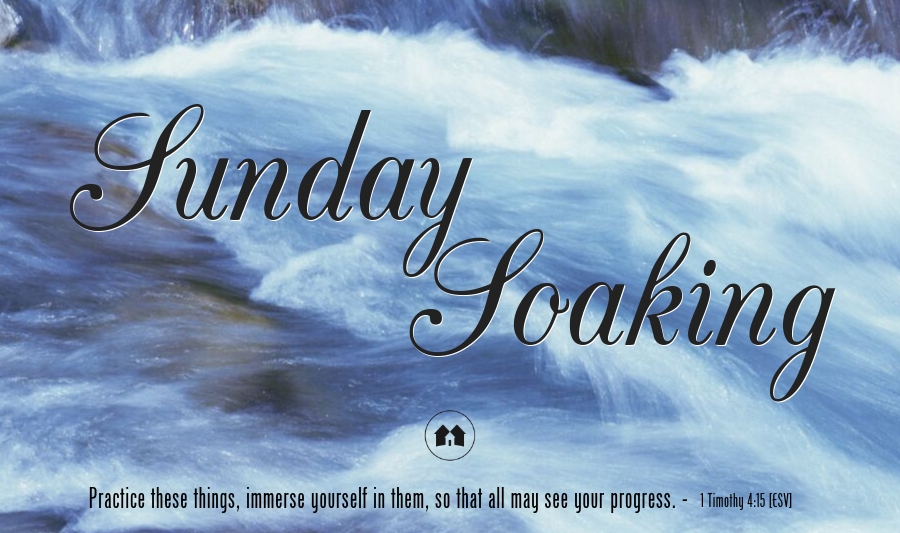“They were also to stand every morning
to thank and praise the LORD.
They were to do the same in the evening.”
I Chronicles 23:30
I Chronicles 23 lays out the duties for the Levites:
- Purify the sacred things
- Tend to the courtyard and side rooms
- See to the bread for the table, flour for the grain offerings, and the unleavened wafers
- Baking
- Mixing
- Measuring
At the end of this long list of duties is added the words of verse 30 found above: “stand…thank and praise…”
Does it seem strange that the spiritual duties are listed along with the physical? Did they show up for Temple Duty 101 training and receive a chore chart with a check list:
- Thank and Praise
- Purify
- Bake
- Mix
- Thank and Praise
Weaving thanks and praise into the daily rhythm made it part of the fabric of their lives – it began to define who they were. Like bookends on the day, it signaled the beginning and the end, the alpha and the omega.
Perhaps beginning and ending with thanks and praise meant it began to bleed into what happened in the middle as well. 
Is it possible that Brother Lawrence, the lowly monk of the 17th century who taught us to serve and worship God as we go about our daily task, was inspired by this same passage? Brother Lawrence teaches us:
“Men invent means and methods of coming at God’s love,
they learn rules and set up devices to remind them of that love,
and it seems like a world of trouble to bring oneself into the consciousness of God’s presence.
Yet it might be so simple.
Is it not quicker and easier just to do our common business
wholly for the love of him?”
Choosing to thank and praise God as we begin and end our day will perhaps spur us to make all our “common business” in the middle acts of loving devotion to our good God.
Brother Lawrence washed dishes, tended the garden, and completed the mundane tasks of day-to-day life as a monk. But he did it out of love for God.
Each day, the Levites baked, mixed, and assisted the priests with repetitive, monotonous tasks. But they began and ended with thanks and praise to God.
Could we do the same? Can we commit to plant our feet on the floor each morning and lift our hands up to God with thanks and praise for another day?
Can we then go about our daily list (that may also including washing dishes, tending to a garden, baking and mixing – but also teaching, driving, folding, cooking, shopping, and a zillion other “ings”) in “consciousness of God’s presence” and “wholly for the love of him?”
As we fall into bed tired but satisfied, can we then end our day as we began – in thanks and praise to God?
All this thanking and praising, I believe, will make the ordinary more sacred, the ho-hum have purpose, and colorize what may, at times, seem like a gray existence.
Of course, we automatically thank and praise Him for the big stuff: when the job comes through, the biopsy is negative, or the tax refund comes just in time to pay the insurance.
But it is when we begin thanking and praising Him for the daily small stuff – the ordinary, every-day stuff – that we began to truly abide in Him. We draw close. We sense His presence. Transformation happens.
November is known for many things: Thanksgiving, Black Friday, Cyber Monday, college football finals, and No-Shave November, to name a few. What if we launched our own new November tradition? Let’s call it No-Grumble November! Let’s choose to launch it by joining with the Levites of the Old Testament to stand each morning, and again each evening, to thank and praise God.
What are you thanking and praising Him for today?
Join us for the remaining weeks of November
as we read, write, and dwell on verses about GIVING THANKS,
in this month’s installment of our Write The Word series.
 You can also say “Thanks!” by visiting their website, www.AReasonFor.com.
You can also say “Thanks!” by visiting their website, www.AReasonFor.com.
